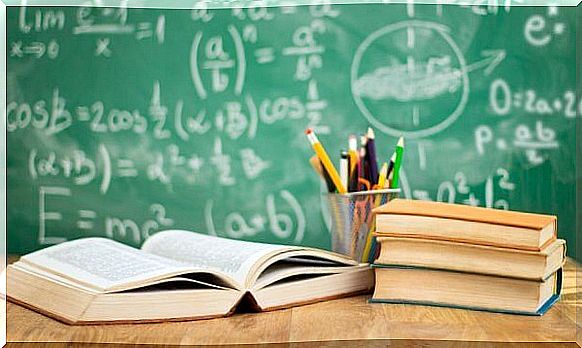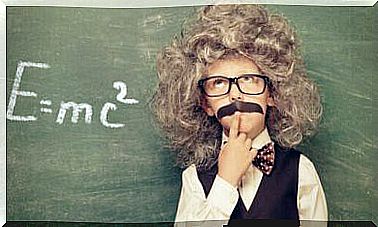What Does An Educational Psychologist Do?

When using the word psychology, people generally think of clinical psychology. But psychology is a much broader discipline than that. Basically, it is the science of human behavior and mental processes. Within the field are many different professions. An example is an educational psychologist, which we must focus on today.
The aim of this article is to educate the reader about the areas of work of an educational psychologist, as well as the current situation of the profession in Spain. The profession is not well known, but educational psychologists perform a much needed job and contribute to quality education. Today, they have many obstacles to overcome and burdens to bear that make their job complicated.
What is an educational psychologist?
An educational psychologist has the task of studying and intervening in human behavior in the context of education. Their ultimate goal is to develop the capacity of people, groups and institutions. Now the word “education” must be taken in its broadest sense, including all kinds of training, learning and personal and collective development.
The study and intervention that educational psychologists work with are related to cognitive processes related to or derived from learning. They reflect on and develop their work at all psychological levels, including social, personal, biological and health-related.

It is common to confuse educational psychologists with other professions, such as teachers, supervisors and child psychologists. While they are all very different professions, it is necessary that they work together for the child to have a good education.
- Teachers work with the study of education and pedagogical models.
- Supervisors guide people throughout their professional and professional lives.
- Child psychologists treat mental disorders that occur in childhood.
As with any science, there are two main aspects of educational psychology: theory and practice. On the theoretical side, you see psychologists who research and create and expand theories and processes about educational psychology. On the practical side, educational psychologists use the knowledge from academic research to improve the quality of education.
The functions of educational psychology
Now we will explain the functions of educational psychology according to the Spanish Council of Psychologists :
- Intervention, according to the student’s pedagogical needs v. First, an educational psychologist should study and anticipate students’ needs for education. Then they can act on them to enhance their educational experience.
- Functions related to professional and vocational guidance and counseling. The main goal here is to contribute to developing students’ competence. By helping them get an overview of their personal, professional and professional goals and abilities, students can steer the direction of their own education and make their own decisions.
- Preventive functions. The educational psychologist should intervene by taking appropriate measures to prevent possible educational problems. In addition, it is important to consider everyone involved (parents, teachers, children, tutors, etc.).
- Improving teaching methods: it is extremely important to be aware of teaching methods. Teachers must study and apply the best pedagogical techniques for students to learn and grow well.
- Family education and counseling. Family is an important part of education. By studying and subsequently consulting family members, they can develop effective family education models. As a result, the lives of everyone in the family will be better.
- Socio-pedagogical intervention. Education does not only come from the person’s professional and family life – everything in their environment plays a role. It is the responsibility of an educational psychologist to study how the current social system affects education. That way, they can intervene in what needs intervention.
- Research and teaching. Finally, for all the other functions to be fulfilled, solid research is needed to know which directions to take. And all research will be useless without teaching that spreads the knowledge to other professionals and students.

Current situation of educational psychology
In Norway, many educational psychologists work in the PP service under the Directorate of Education.
Educational psychologists in Spain today face a wide range of problems. The biggest ones are lack of awareness, little support from public authorities, professional confusion and a hostile education system.
In fact, most people have never even heard of an educational psychologist. Therefore, they have no visibility, and it is more difficult for them to spread their knowledge and get funding for research. Exposure to these professionals and the work they do is necessary to increase the visibility of the discipline, which is so important for the quality of education.
In addition, public institutions do not even recognize educational psychology as such. People who study it are seen as mentors or teachers by the authorities. The lack of support is not only seen in how they are marked, but also in the few resources given to the discipline.
Due to poor government organization, there is confusion about the various functions of educational psychologists. In a position, a single person can act as a teacher, educational psychologist and supervisor. Instead of one person doing the job for many, there should be a team of well-coordinated professionals working for high quality education for students.
The current education system is full of problems that complicate the practice of educational psychologists. In fact, it seems that the goal of the current Spanish system is different from what it was originally designed for.
Last but not least, people in positions of political power make decisions that ignore recommendations from scientific research. Using good measures in a system that does not work will not solve the problem. Instead, the education system needs structural changes if it is to be worth the name “education.”
Education is a very important field and has a great influence on future generations. Therefore, we need to spread knowledge about educational psychologists and the difficult role they play.









